I explained on Thursday how Australian households have been financially “wrecked” by soaring interest rates, soaring rents, and plummeting real wages.
Real per capita household disposable income fell by 0.2% over the year to June 2023, which drove a 0.3% decrease in real per capita GDP over the same period:
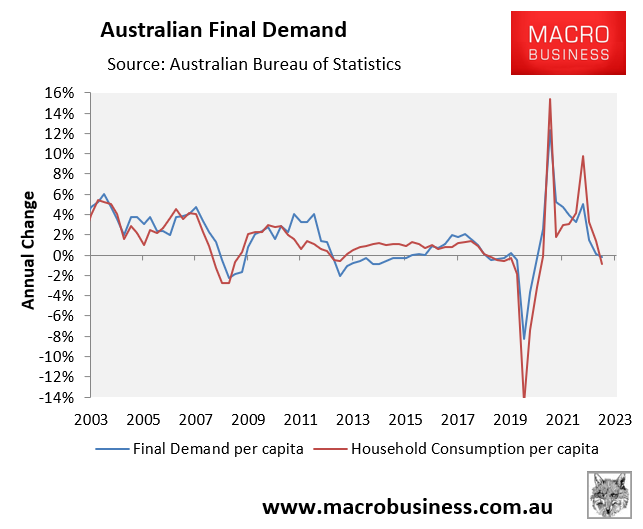
This reduction in spending occurred despite the household savings rate falling to 3.2%, its the lowest level since the June quarter of 2008:
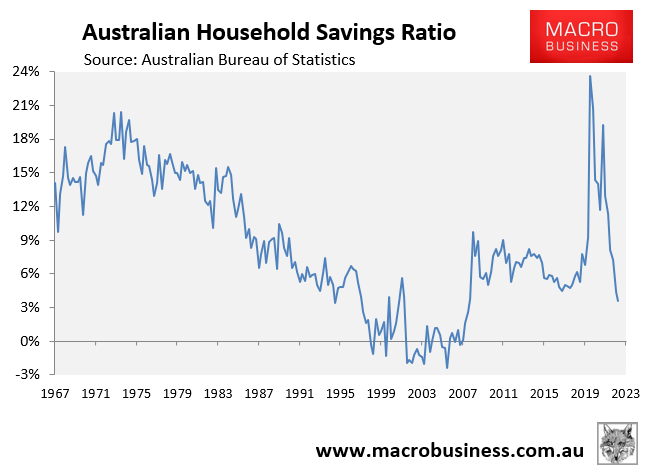
The next chart, derived from Wednesday’s national accounts, shows that real per capita household disposable income suffered a record 5.1% decline in the year to June, reflecting the sharp fall in real wages:
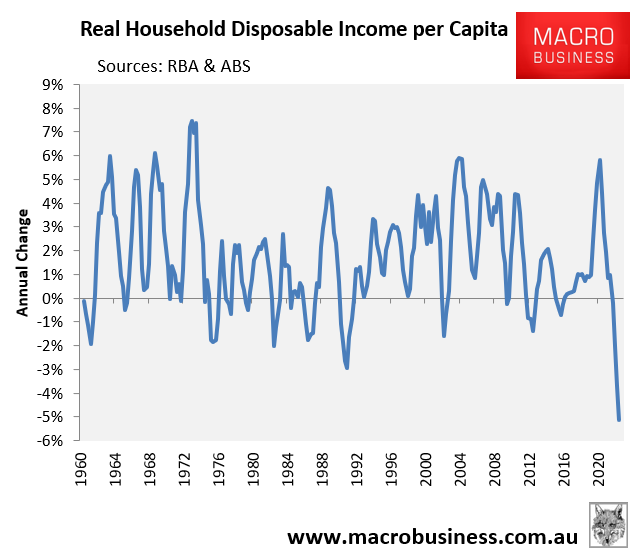
In turn, households have given up all of the stimulus-driven income gains from the pandemic, with real per capita household disposable income plunging to early 2019 levels, which was little changed from 2010:
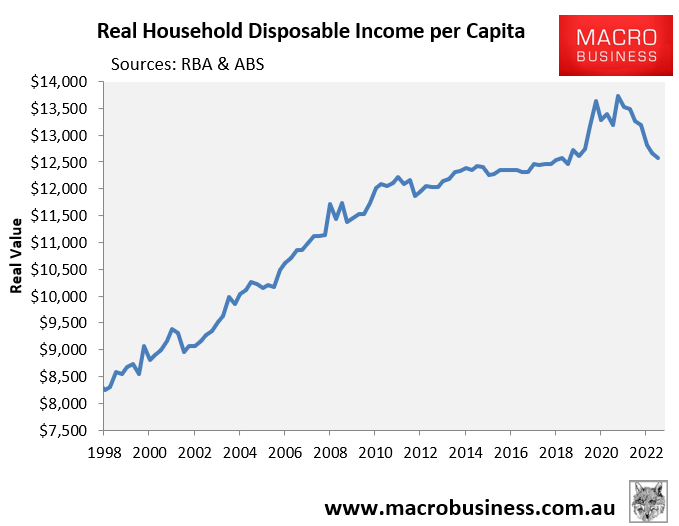
So that’s 13 years of almost zero per capita income growth. Tell me, why did we import millions of migrants again?
The situation facing households will only worsen from here given average mortgage repayments will continue to rise as huge numbers of fixed rate mortgages expire and revert to variable rates.
In turn, debt repayments as a share of household income will climb to record highs into 2024:
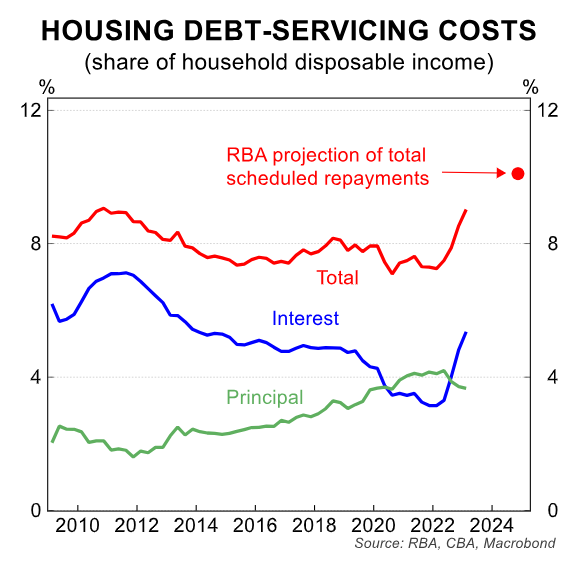
Households also face an extended period of real income cuts as wages fail to keep pace with inflation.
Unemployment will also continue to rise as record labour supply via immigration meets lower labour demand as the economy continues to slow.
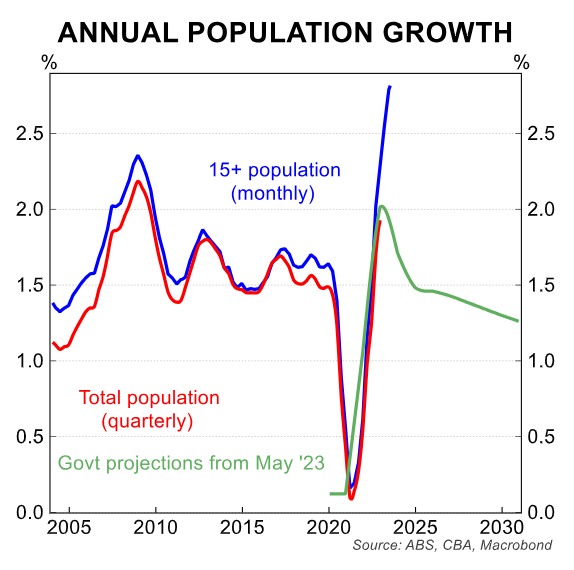
In short, Australian households face a diabolical reduction in their living standards amid a deep per capita recession, falling real wages, soaring mortgage repayments and rents, and crush-loaded housing, infrastructure and services.

